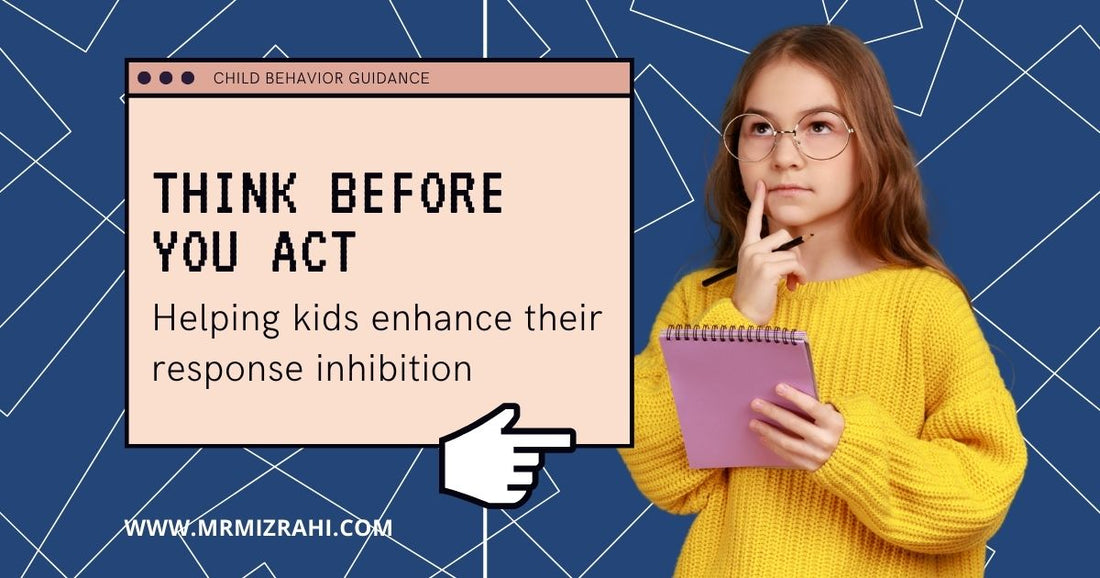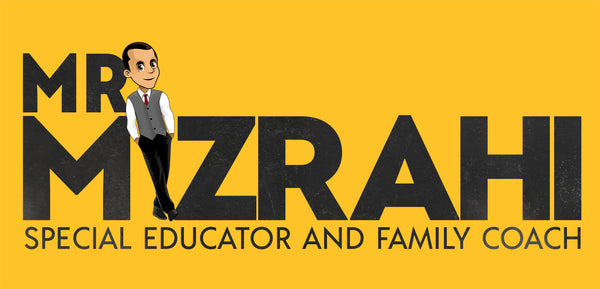
Enhancing Response Inhibition: Helping Kids Think Before They Act
Share
What Is Response Inhibition?
Response inhibition is the ability to pause before acting, allowing individuals to reflect instead of reacting impulsively. It helps children manage their actions, ignore distractions, and regulate their behavior in social and academic settings. Strong response inhibition skills support safety, problem-solving, and focus. Below are practical strategies to help children strengthen this essential executive function.
- Raising a hand before answering in class
- Waiting for one’s turn in a game or conversation
- Ignoring distractions while doing homework
- Wearing a helmet before riding a bike
- Reading directions before starting an assignment
- Practicing patience with siblings
- Completing a long, multi-step task
- Waiting in line at school or a store
- Resisting the urge to fall back asleep in the morning
- Avoiding talking back to parents when upset
1. Practice the “Pause and Think” Rule
Teach your child to count to 10 before reacting to a situation. This simple habit helps build patience and gives them time to consider their response. Reinforce this by modeling the behavior yourself in everyday situations.
2. Play Turn-Based Games
Board games like Chutes and Ladders, Trouble, and Chess encourage kids to wait their turn and think ahead. Games that require strategy and patience help reinforce the ability to delay actions for a better outcome.
3. Introduce the “Take a Break” Technique
When a child becomes frustrated with a task, allow a short break to reset their emotions. For example, if they are overwhelmed by a writing assignment, stepping away for ten minutes can help them return with a fresh perspective.
4. Model Self-Control in Everyday Situations
Demonstrate response inhibition by verbalizing your thought process:
- “I’d love to watch TV, but I need to finish my work first.” By hearing how you manage impulses, children learn to apply similar strategies.
5. Review Directions Before Starting a Task
Encourage your child to read and discuss instructions before beginning an assignment. This habit prevents them from rushing through tasks and making mistakes due to overlooked details.
6. Encourage Puzzle-Based Video Games
Games like Bejeweled, Tetris, and Bubble Shooter reward players for delaying their first move in favor of a more strategic decision. Discuss how waiting and planning leads to better outcomes in the game—and in real life.
7. Channel Energy Through Physical Activity
Kids who struggle with impulse control often benefit from physical exertion. Encourage activities like running, dance, or sports to help release pent-up energy. Additionally, simple mindfulness exercises such as yoga or deep breathing can teach them to slow down and reflect before acting.
Coach Benjamin Mizrahi. Educator. Learning Specialist. Family Coach. Father. Husband.
More articles on EXECUTIVE FUNCTIONS COACHING – Benjamin Mizrahi
